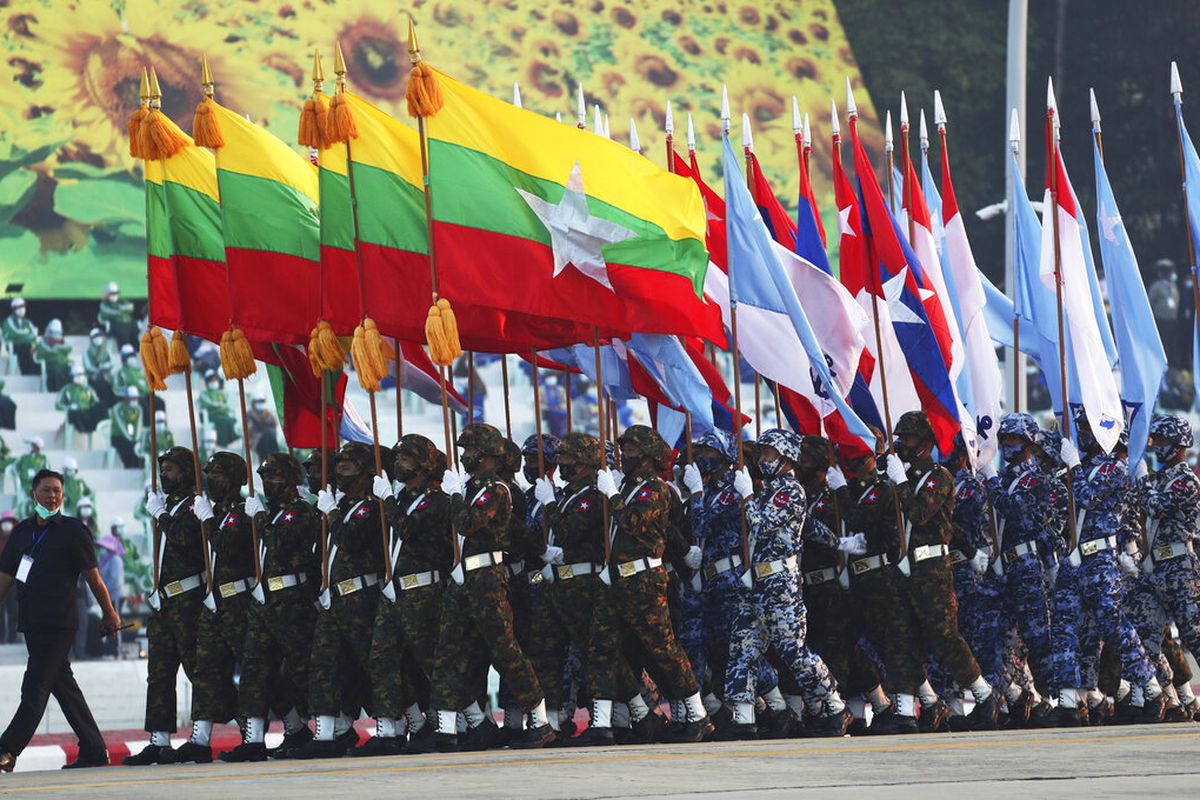Myanmar Junta Prepares for Poll, Raising Fears of More Bloodshed

The junta-imposed state of emergency is due to expire at the end of January, after which the constitution says the authorities must move to hold fresh elections.
The government of junta supremo Min Aung Hlaing has not set a date, but last week gave all existing and aspiring political parties two months to register with its election commission.
Military negotiators are working to stitch together a large enough patchwork of constituencies to make an election credible, including ethnic rebel groups that have stayed out of the post-coup chaos, and smaller, regional parties.
But voting will likely be impossible in many areas of the country, said Htwe Htwe Thein at Curtin University in Australia.
"In areas they do control, it is possible that people could be forced to vote, and vote for the junta-affiliated party or parties," she told AFP.
"People would certainly assume that they are being watched - and there could be punishment for not voting or voting against the junta."
Threats have also been made by anti-coup fighters against those cooperating with the election, with local media reporting several attacks on teams verifying voter lists in commercial hub Yangon.
The junta's "technical ability to conduct anything approaching even clearly fake elections will be circumscribed by lack of bureaucratic capacity, confusion, boycotts and violence," independent analyst David Mathieson told AFP.
Any poll would be "beyond fraudulent", Mathieson warned.
Also read: UNICEF: 11 Schoolchildren Killed in Myanmar Air Strike
"These aren't real elections, remember. They're a squalid performance to justify the (junta's) coup d'etat claims of a corrupt 2020 election," he said.
Determination and defiance
With the generals shielded at the United Nations by Moscow and Beijing - and the international community grappling with crises in Ukraine and Afghanistan - many in Myanmar have given up on help from outside.
It would take nothing short of "a miracle" for Myanmar's opposition to get the kind of weapons support currently rolling into Ukraine, said Mathieson.
Close ally Russia has already come out in support of the polls, and while Washington has urged the international community to reject any election as a "sham", diplomatic sources say neighbours such as Thailand, India and China will likely give their tacit approval.
But whatever the outcome, it is unlikely to end the violence that is convulsing the country.
"The mission is to attack the military dictatorship with the determination of defiance," said Lin Lin from the jungle near the Thai border.
"When an elected government is selected by people, we will rest."
Source: Agence France-Presse
Simak breaking news dan berita pilihan kami langsung di ponselmu. Pilih saluran andalanmu akses berita Kompas.com WhatsApp Channel : https://www.whatsapp.com/channel/0029VaFPbedBPzjZrk13HO3D. Pastikan kamu sudah install aplikasi WhatsApp ya.






























